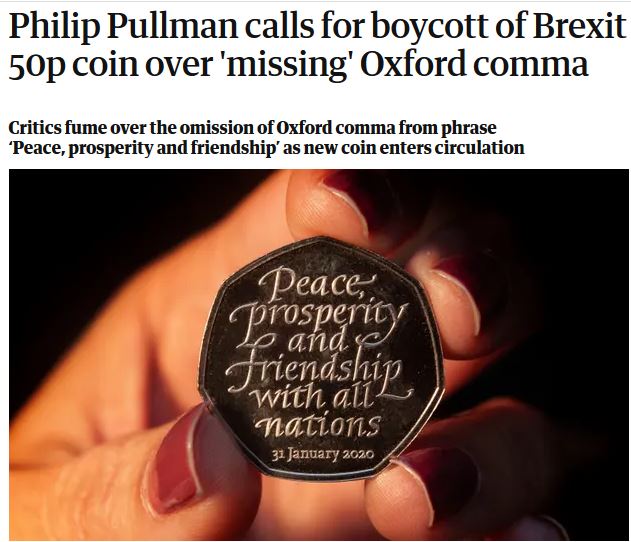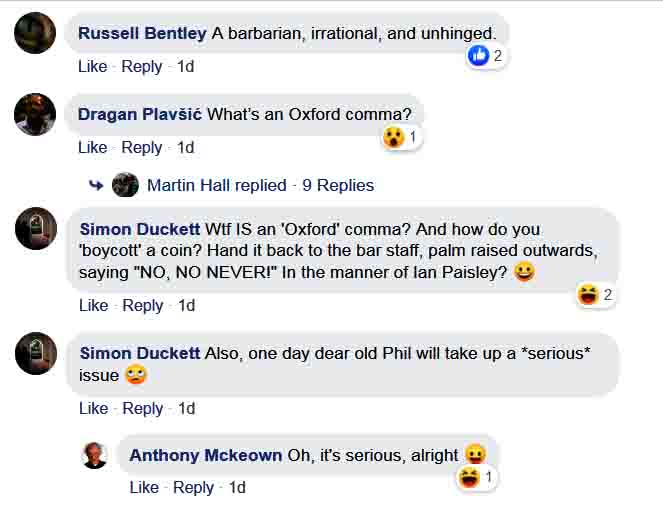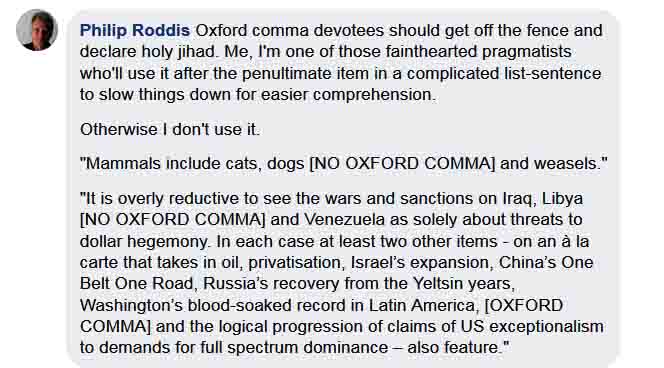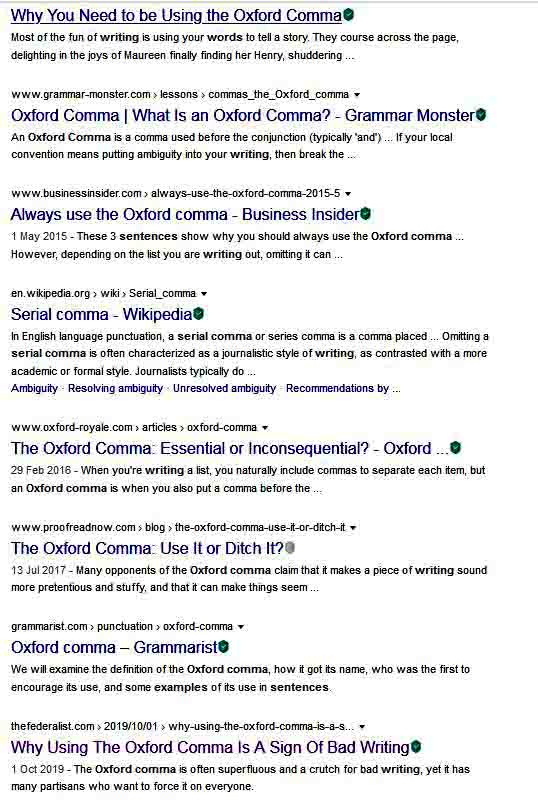It’s a tale of two Philips.
Oxford commas, not to be confused with learned lepidopterans, also come in handy when list items house subclauses which may themselves contain the conjunctives and1 or or:
Oxford Colleges include Magdalen, ‘Maudlin’ to the cognoscenti, Balliol, whose alumni include Richard Dawkins, Robert Peston and Boris Johnson, Corpus Christi or, as it is affectionately known, Christie’s victims, and Keble.
Not that I’d ever write a sentence like the above. Though if I did, I’d call on semicolons to stand in as list separators:
Oxford Colleges include Magdalen, ‘Maudlin’ to the cognoscenti; Balliol, whose alumni include Richard Dawkins, Robert Peston and Boris Johnson; Corpus Christi or, as it is affectionately known, Christie’s victims; and Keble.
Yay! Let’s hear it for the Oxford semicolon, also known as semicolonic irrigation.
I fear that, as his train nears the points, Mr Pullman is sliding into the genteel derailment of up-his-own-arsehood.2 My vote goes to the Federalist for this observation:
Oxford commas are the galoshes of grammar: sometimes necessary to avoid a mess, but never elegant.
My sentiments too, though my neoprene lined Le Chameau welligogs, well, they be elegance on legs. But let me close with the first set of returns from a Google search on the matter.
* * *
- How to get five consecutive ‘ands’ in a parsing sentence? The landlord of the Fox and Duck hires a signwriter to give the pub’s fading sign a make-over. On task completion the landlord refuses to pay up. “Too much space”, he complains, “between Fox and and and and and Duck”.
- “I fear that, as his train nears the points, Mr Pullman is …” More typically I’d have no comma in that construct, and even more typically I’d have just the second. That other literary figure, poet and critic William Empson, wound up as head of the English Dept at Sheffield Uni. There he insisted that when commas act as weak parentheses they must be used in pairs. In correcting student essays he’d write IOCTT in the margins – “if one comma then two”. Like Pullman’s, Empson’s is an overly formulaic approach, as though language were no more than a branch of formal logic, rather than tool kit to solve multi-faceted communicative problems in the real world. Like all punctuation devices, commas afford meagre compensation for writing’s narrow bandwidth in comparison to that of speech. As such they are not to be fetishised by pedants. Not even pedants who write as well as Philip Pullman.





